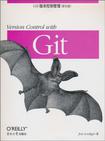Git版本控制管理
出版时间:2010-6 出版社:东南大学出版社 作者:罗力格 页数:310
Tag标签:无
前言
AudienceWhile some familiarity with revision control systems will be good background material,a reader who is not familiar with any other system will still be able to learn enoughabout basic Git operations to be productive in a short while. More advanced readersshould be able to gain insight into some of Git's internal design and thus master someof its more powerful techniques.The main intended audience for this book should be familiar and comfortable with theUnix shell, basic shell commands, and general programming concepts.Assumed FrameworkAlmost all examples and discussions in this book assume the reader has a Unix-likesystem with a command-line interface. The author developed these examples on Debian and Ubuntu Linux environments. The examples should work under other environments, such as Mac OS X or Solaris, but the reader can expect slight variations.A few examples require root access on machines where system operations are needed.Naturally, in such situations you should have a clear understanding of the responsibilities of root access. Book Layout and OmissionsThis book is organized as a progressive series of topics, each designed to build uponconcepts introduced earlier. The first 10 chapters focus on concepts and operationsthat pertain to one repository. They form the foundation for more complex operationson multiple repositories covered in the final six chapters.If you already have Git installed or have even used it briefly, you may not need theintroductory and installation information in the first two chapters, nor even the quicktour presented in the third chapter.
内容概要
Git可以支持几乎无数种开发与合作的方法。它最早由LinilusTorvalds创建,用于管理Linux内核开发,现已成为分布式版本控制的主流工具。但是Git的灵活性也意味着某些用户无法发挥它的最大价值。《Git版本控制管理》提供了最高效的方法教程,其友好又严谨的建议有助于你随心操控Git的各项功能。
作者简介
作者:(美国)罗力格(Jon Loeliger)罗力格,是一位自由职业的软件工程师,致力于Linux、U-Boot和Git等开源项目。他曾在Linux World等诸多会议上公开讲授Git,还为《Linux Magazine》撰写过数篇关于Git的文章。
书籍目录
Preface1.Introduction Background The Birth of Git Precedents Time Line What's in a Name?2.Installing Git Using Linux Binary Distributions Debian/Ubuntu Other Binary Distributions Obtaining a Source Release Building and Installing Installing Git on Windows Installing the Cygwin Git Package Installing Standalone Git (msysGit)3.Getting Started The Git Command Line Quick Introduction to Using Git Creating an Initial Repository Adding a File to Your Repository Configuring the Commit Author Making Another Commit Viewing Your Commits Viewing Commit Differences Removing and Renaming Files in Your Repository Making a Copy of Your Repository Configuration Files. Configuring an Alias Inquiry4.Basic Git Concepts Basic Concepts Repositories Git Object Types Index Content-Addressable Names Git Tracks Content Pathname Versus Content Object Store Pictures Git Concepts at Work Inside the .git directory Objects, Hashes, and Blobs Files and Trees A Note on Git's Use of SHA1 Tree Hierarchies Commits Tags5.File Management and the Index It's All About the Index File Classifications in Git Using git add Some Notes on Using git commit Using git commit --all Writing Commit Log Messages Using git rm Using git mv A Note on Tracking Renames The .gitignore File A Detailed View of Git's Object Model and Files6.Commits Atomic Changesets Identifying Commits Absolute Commit Names refs and symrefs Relative Commit Names Commit History Viewing Old Commits Commit Graphs Commit Ranges ……7.Branches8.Diffs9.Merges10.Altering Commits11.Remote Repositories12.Repository Management13.Patches14.Hooks15.Combining Projects16.Using Git with Subversion Repositorieslndex
章节摘录
插图:It's important to see Git as something more than a version control system: Git is acontent tracking system. This distinction, however subtle, guides much of the design ofGit and is perhaps the key reason Git can perform internal data manipulations withrelative ease. Yet this is also perhaps one of the most difficult concepts for new usersof Git to grasp, so some exposition is worthwhile.Git's content tracking is manifested in two critical ways that differ fundamentally fromalmost all other* revision control systems.First, Git's object store is based on the hashed computation of the contents of its objects,not on the file or directory names from the user's original file layout. Thus, when Gitplaces a file into the object store, it does so based on the hash of the data and not onthe name of the file. In fact, Git does not track file or directory names, which are asso-ciated with files in secondary ways. Again, Git tracks content instead of files.If two separate files located in two different directories have exactly the same content,Git stores a sole copy of that content as a blob within the object store. Git computesthe hash code of each file according solely to its content, determines that the files havethe same SHA1 values and thus the same content, and places the blob object in theobject store indexed by that SHA1 value. Both files in the project, regardless of wherethey are located in the user's directory structure, use that same object for content.If one of those files changes, Git computes a new SHA1 for it, determines that it is nowa different blob object, and adds the new blob to the object store. The original blobremains in the object store for the unchanged file to use.Second, Git's internal database efficiently stores every version of every file——not theirdifferences——as files go from one revision to the next. Because Git uses the hash of afile's complete content as the name for that file, it must operate on each complete copyof the file. It cannot base its work or its object store entries on only part of the file'scontent, nor on the differences between two revisions of that file.
媒体关注与评论
这是一本应该随身携带的书。 ——Don Marti 编辑、记者以及会议主席
编辑推荐
《Git版本控制管理(影印版)》你将会:学习如何在多种真实开发环境中使用Git洞察Git的常用案例、初始任务和基本功能理解如何在集中和分布式版本控制中使用Git使用Git管理补丁、差异、合并和冲突获得诸如重新定义分支(rebasing)、钩子(hook)以及处理子模块(子项目)等的高级技巧学习如何结合使用Git与subversion
图书封面
图书标签Tags
无
评论、评分、阅读与下载
用户评论 (总计14条)
- 拿到书后,看了非常好,比我想象的要好不少,下次继续支持
- 作者的逻辑很清晰, 说明图很容易让人理解.
- 英语不过关真蛋疼啊~~~~~··
- 送货也很速度
- 内容不错!不过就要慢慢看..顺便练练E文
- 内容详实,很细致,不过作者用词太丰富了,读起来没别的书那么顺畅
- 对于想了解Git方方面面的开发人员来说,您应该拥有这本好书。
- 还可以,了解git的时候看看,但是好多得example不够复杂,不够详尽
- 书不错,很适合入门看的。
- 挺好的书,但不适合快速入门用
- 旧书吧 第一页还有一个什么南通职业大学的图书馆收藏章 奇葩啊
- 就封面有一点点划痕,不伤大雅。封面光滑,纸质硬朗。内容嘛,还没细看,不做评价。其实我也想买Apress的《Pro Git》,可是那个没影印版,I can't afford it!
- 绝对是GIT方面的好书,只要你肯看英文。退掉了一本国产的git书之后,买了这本。好,无论是入门还是提高。讲的很清晰。
- 的确是一本好书,就是自己英语水平有点水啊!
